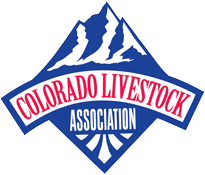Precedent-setting court decision could have far-reaching implications.
In June of 2015, areas of Yuma County experienced a once-in-50-years rainfall event with over two inches of rain in 30 minutes causing flash flooding. Following the thunderstorm, the Colorado Division of Wildlife (CDW) received a report of dead fish in local fishing ponds.
According to court records, CDW counted 379 dead fish in the South Fork of the Republican River, 3 ½ miles away from a Colorado feedyard, and assumed the fish kill had been caused by overwhelmed effluent ponds. The Colorado Attorney General’s office filed an action against the feedyard, accusing the owners of “unlawful taking” of 14,711 fish, an estimate extrapolated by the length of the river to the Kansas border, and levied fines against the feedyard. In February 2018, a district court judge in Yuma County issued a summary judgement finding the feedyard liable.
Earlier that spring, prior to the flash flooding event, the feedyard was inspected by the Colorado Department of Public Health and Environment (CPDHE), the state regulatory agency charged with protecting the environment, and after correcting some violations was found to be in full compliance with Colorado’s discharge regulations.
The Colorado Livestock Association engaged its legal counsel to prepare and file an Amicus Curiae Brief with the Colorado Court of Appeals in support of the feedyard’s appeal. CLA was joined in the effort by the Colorado Farm Bureau (CFB) and the Colorado Corn Growers Association (CCGA).
According to CLA’s legal counsel, John Barry, “This case is of concern because the determination by the trial court that, as a matter of law, injury or death of wildlife as a consequence of the release of effluent from livestock waste retention ponds, stemming from a severe rain or other climatic event, can result in strict liability to the operator despite the operator’s compliance with CDPHE regulations. A CDPHE compliant CAFO must be able to operate under the understanding that as long as the operator is in compliance with CDPHE requirements, such operator does not incur exposure for unforeseen weather and other events, over which the operator has no control.”
The Colorado Court of Appeals accepted the brief, filed jointly by CLA, CFB and the CCGA, in support of the feedyard on January 18, 2019.
Decades of Work Protecting the Environment
Livestock production naturally results in byproducts, including: manure, urine, bedding, feed waste, dry harvested forage, and other related raw materials. Farmers and ranchers are mindful of the value of these byproducts and their use has proven to be beneficial to agriculture’s long-term sustainability.
In 1998, members of the CLA Board of Directors approached the Colorado Department of Public Health and Environment (CDPHE) and discussed the possibility of formulating regulations for operating feedyards, dairies, and hog operations of a certain size called Concentrated Animal Feeding Operations (CAFOs). CLA members, representatives of CDPHE, and other interested parties engaged in a robust stakeholder process over a period of several years to develop regulations governing CAFO operations. The regulations first became effective on April 14, 2003, and have been revised on July 24, 2007, and again on December 22, 2008.
Now, CDPHE routinely inspects and monitors CAFO facilities in an effort to minimize the potential of a discharge or release of effluent to waters of the state or the U.S. CDPHE’s rules require a CAFO to construct bermed retention facilities to store these materials.
Complying with CAFO regulations is an intense and extremely detailed process. It involves a rigorous review and study of the storage and utilization of effluent, location of all nearby functional wells, names and locations of public roads, names and locations of surface waters that may receive discharge, the number of animals, designs, calculations, drawings, specification tables, and other documents which are prepared by, or reviewed by, professional engineers registered in Colorado.
Members of the Colorado Livestock Association’s Natural Resources Committee meet regularly with employees of the CDPHE’s Environmental Ag Program, the division that enforces CAFO regulations, to continue this cooperative effort to protect Colorado’s natural resources.
